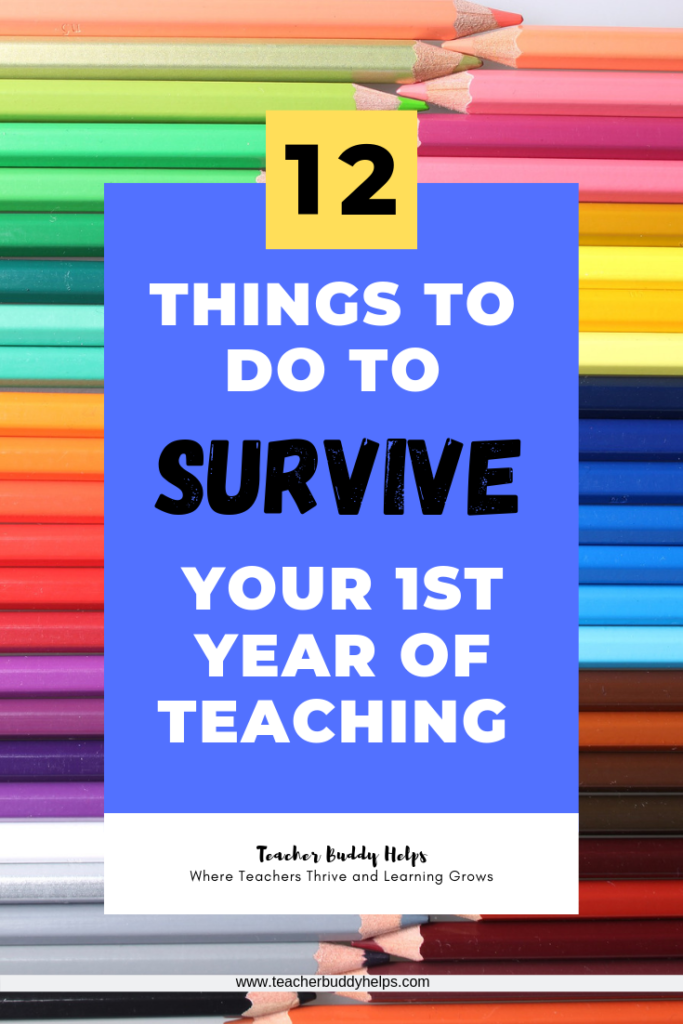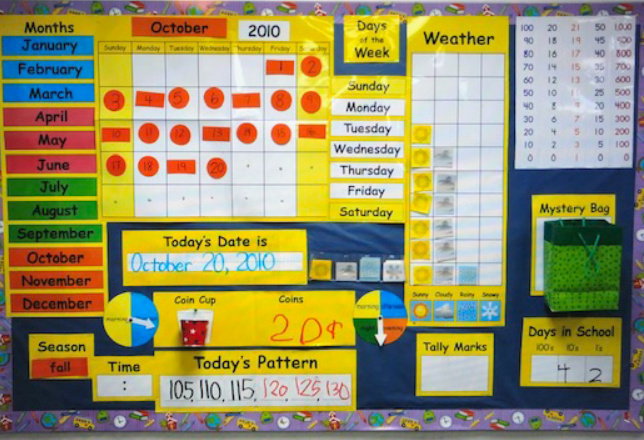12 Reliable Survival Tips for First-Year Teachers

Survival Tips for First-Year Teachers! What exactly are the “12 Reliable Survival Tips for

**
Someone help me with some survival tips for first-year teachers!!
The days and nights are exhausting. Will you make it through? Are you beginning to doubt your decision to become a teacher?
WELL DON’T
What you need to do instead – is to create some of your own time.
Here are the 12 Things I Suggest to Help You Survive….Survival Tips for First Year Teachers!
#1. Learn to plan a week ahead.
It might be too late to do that this year, but get a start at this next August before your new school year. Have your first full week planned out the first day of school, and during that week, work on the next week’s plans (and supplies needed).
This simple routine will take away an ENORMOUS AMOUNT of the last minute STRESS that comes with doing things at the last minute. I have a separate article that completely spells out how to prepare ahead of time, here:
Teacher Organization – How to PREPARE and Stay Focused.
#2. Take at least a 15-minute lunch.
Don’t get in the rut of eating at your desk so that you can “just get one more thing done.” Eating with your colleagues can be a means of support after a busy morning. (of course, if the atmosphere in the lounge brings you down, then don’t get involved in that). Perhaps you can find a like minded teacher who will join you for lunch in a different location.
#3. Learn to let students help with small tasks.
Learn to let students help with small tasks that you assign to a responsible student. Have a student (rotate using different students) stay… (make sure they want to, and parents are OK with it) for about 15 minutes a few days each week to do little tasks like, sharpening the pencils, straightening the class library books, stapling papers for you, wiping down the marker board, ETC.
Have some well-established classroom routines in place, and your students will know to help you keep the room in order. If you’d like to see what classroom routines I used, I have created a FREE download that I can share with you.
Just complete the form below and once I have your email address, I will zip it right over to you.
**
#4. Don’t take TONS of work home with you.
That huge bag or crate will only add to your anxiety. Take no more than 2 things home; LEARN TO PRIORITIZE. The other things can wait.
One thing I did when my own children were young and involved in after school activities

#5. Keep a Running “To Do” List
Learn to keep a RUNNING LIST OF THINGS TO DO. Doing this will be one of the greatest ways to help you survive your first year. I actually got to where I enjoyed being able to “scratch things off the list.” Every few days I would re-write the list (taking off what was already done) since by then it would have more scratched off than not. Place STARS next to items that need to be done right away or first on the list.
Look at everything you need to do and the BREAK IT DOWN into each step (which is then listed separately on the list).
FOR EXAMPLE: Let’s say your primary students are going to make a cute little flower card for their Moms for Mother’s Day. This is how your list might look just for that one activity.
- buy paper plates
- cut green construction paper
- get out the colored choice for petals (cut 10 of each color)
- make sure you have enough glue
- cut lined paper for the poem
- find the tissue paper (buy more if needed).
- cut the tissue paper into little squares.
- ETC.
As you can see, some of these tasks you can easily assign to a parent volunteer (even ones that show up unexpectedly) since you will already have them on your RUNNING LIST.
If you want more information about being prepared ahead of time, read this article.
Teacher Organization – How to Prepare and Stay Focused
#6. When a friend invites you out, GO
When a friend invites you for a quick coffee or an after work drink, GO. Everyone need a break; ESPECIALLY TEACHERS.
More Survival Tips for First-year Teachers
#7. Learn to Delegate
Learn to delegate both at home and in the class. Have your own kids finish making dinner (or your husband/wife). Ask for help when you need it. In class have students take on little tasks; I bet every classroom has one or two students who would love to check off homework as it’s handed in.
#8. Write Everything Down
Write everything down. When you remember to, take a post-it note out to recess and to lunch with your (or use the note section on your smart phone) so that when a thought comes to you, you can write it down right then and there. This helps because the more we try to remember all the little things that go through our minds (as both teachers and busy parents- for those of you that have kids), the more that we become anxious.
Once it’s written down, if it’s something that needs “doing”, add it to the LIST you have (see #5 above), if it’s an idea about teaching or information about a student, add it where you keep that information. I suggest a folder for each student and a journal or spiral notebook for teaching ideas.
#9. Try your best to do things AHEAD OF TIME
Whenever possible, try to do things ahead of time. Two weeks before parent teacher conferences, make a chart with time slots available, craft your note to parents so you have time to edit it and add cute graphics. Then when the day arrives to send it home, it is ready – stapled and in backpacks on time. Zip off a quick email to parents letting them know to look for it and then VIOLA! It is all done!
#10. Each Friday – Look ahead to the next week.
Each Friday afternoon, before leaving for the weekend, do a quick comparison of your lesson plan book with the school calendar, the district calendar, your own (and your family’s) calendar in order to coordinate the important/crucial items. Add in school activities in your plan book (moving over the plans you’ve already PENCILED IN because you have planned a week ahead of time (see #1 above).
Here is a motivational story about becoming a teacher.
Why did you Become a Teacher? What’s Your WHY?
#11. Go to local events with your family
Take your family (or just yourself) to local events on the weekend at least once a month (twice is even better). Everyone needs to have outside fun activities to add to life’s moments. 🙂
#12. Begin work on Report Cards EARLY
Begin working on report cards three weeks before they are due. Do little things like giving citizenship grades, or writing comments. For subjects that you’ve already completed all the testing, calculate those grades and put them on the report cards. That way when the time comes, a good portion is completed already.
Average grades without the final test, so that you can just add the final test grade in with the rest once it’s complete. As the years go by, you will find a system that works well for you; just don’t put it off to the last minute/day.
I’m sure there are probably 12 More things you can do to lessen the STRESS of being a teacher. Find what works for you, and embrace it.
Just DON’T GIVE UP!!
You are making a difference to each of your students.
I hope that you have found these survival tips for first-year teachers useful. Let me know of other ways you’ve found that help you survive the stress! I’d love to hear from you!
Here’s another article that I found on the website Teacher Trap. It’s called “A Better Back to School.” You might find some helpful tips there too!
Until Next Time,
Your Teacher Buddy






